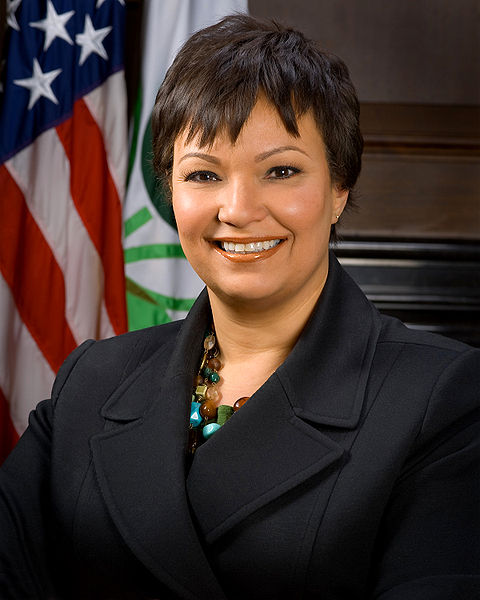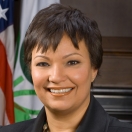
Ed. note: This post is part of the Celebrating Black History Month series that highlights the contributions of African-Americans who are helping the President achieve his goal of winning the future.
I'm a proud native of New Orleans – I was raised in Pontchartrain Park in New Orleans’ Upper Ninth Ward. My family's home was flooded during Hurricane Katrina and, like many of our neig hbors, it was uninhabitable and had to be gutted. Still, on one of my recent trips back I talked to folks about plans to rebuild the house and others as part of a green, sustainable neighborhood. I’m proud to have grown up in and been shaped by such a resilient community.
hbors, it was uninhabitable and had to be gutted. Still, on one of my recent trips back I talked to folks about plans to rebuild the house and others as part of a green, sustainable neighborhood. I’m proud to have grown up in and been shaped by such a resilient community.
After high school at Saint Mary's Dominican in New Orleans, I stayed to go to Tulane University (Roll Wave!) and then got my master’s degree in chemical engineering from Princeton. My dream as a child and throughout school was to become a doctor because I had always wanted to help people when they got sick. But I came to realize that by protecting our environment I was approaching the same problem from a different angle - by making sure people didn’t get sick in the first place.
As the Administrator of the EPA, I oversee a staff of more than 18,000 employees working across the country with a single mission: to protect human health and the environment. I touch on everything from making sure the air we breathe and the water we drink is free from harmful toxins to assisting with response to environmental disasters.
During the State of the Union address, the President focused on winning the future through innovation and job creation. EPA’s everyday work encompasses these vital objectives. The rules and standards EPA enforces not only protect human health, but inspire innovation in industries seeking to be cleaner and more efficient. These new ideas and processes open doors for new jobs and spur our economy. Our ongoing work with the Department of Transportation and automakers to help encourage development of the clean, fuel efficient cars of the future is a good example. These cars will save drivers money at the pump, create good-paying jobs and help put America at the forefront of clean energy technology - all while reducing carbon pollution and emissions of other harmful pollutants into the air we breathe.
Serving as EPA Administrator holds a special significance for me. I didn’t see African-Americans in positions of leadership in government when I was a child. Being able to serve in this role is a tremendous credit to the bold individuals before me who fought for equality for over a hundred years. While February is Black History Month, I appreciate and try to honor those who fought for equal rights every day. That's why one of my heroes is Dorothy Height. I had the opportunity to sit down with her just weeks before her death, and she was just as strong and determined as she had always been. She accomplished so much by refusing to back down from what she knew was right, something anyone in public service should try to emulate.
That's also why as Administrator I have worked broaden the conversation on environmentalism. I want to show individuals and communities – though they may not think of themselves as environmentalists – that environmental issues play a role in their health and welfare. Clean air and clean water is important to everyone. And EPA has worked to shed light on the disproportionate environmental burden that too many poor and minority communities face today.
At the EPA, we take direct inspiration from those who dedicated their lives to fighting for equality as we fight for environmental justice. That’s because environmental challenges have the power to deny equality of opportunity and hold back the progress of communities. These are the very same battles that so many others fought, and the ones many would still be fighting if they were with us today. And we hope the next generation of Americans will join the effort. A lot of people think that you have to be a scientist or an engineer to work for EPA. While we do have some of the country’s brightest scientists working here, we also have accountants, writers, analysts, graphic designers and many other fields you may not expect. So educate yourself on what EPA does and find out how you can use your skills and career interests to further our mission: protecting the health and the environment of the American people.
Lisa P. Jackson is the Administrator of the Environmental Protection Agency


